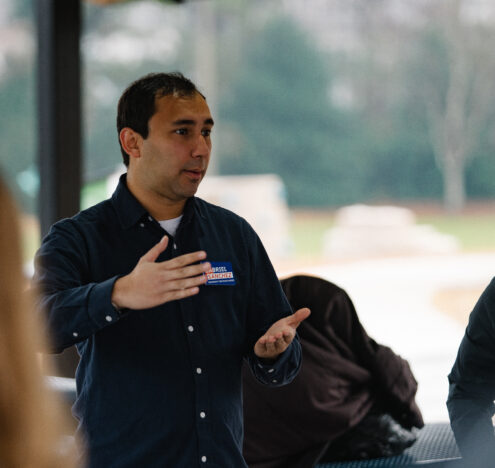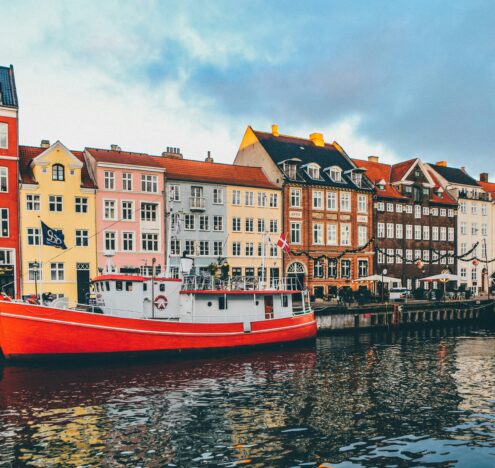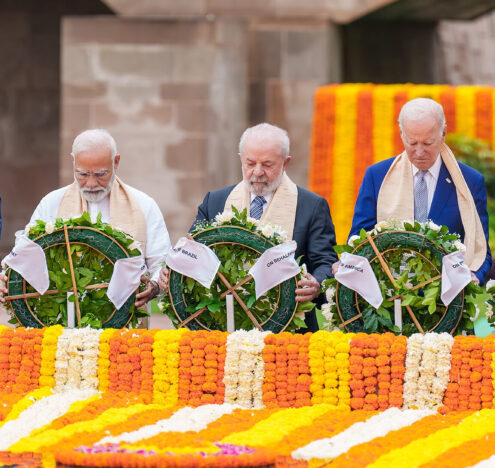This analysis was featured in Critical State, a weekly newsletter from Inkstick Media and The World. Subscribe here.
Last week on Deep Dive, we looked at some of the unintended consequences for domestic protest movements of being observed by international actors. This week, we’ll look at new research on what happens when domestic protesters very much intend to be observed by the outside world.
The whole concept of a political prisoner is, in some basic sense, internationalized. If you are being held in custody by a government because that government perceives you as a political threat, then it is near impossible to appeal to that government’s sense of legal responsibility to gain your freedom. Jailing political prisoners rarely seems absurd to the government doing the jailing. To international audiences, however, the logics of power preservation behind jailing political opponents are often painfully obvious. For that reason, many political prisoners make direct appeals to international audiences in hopes of aid in securing their release.
International attention does help free Chinese political prisoners, but only if it comes early in the process. The effect of all forms of international pressure, however, has decreased with time.
In a recent article in International Studies Quarterly, political scientist Jamie Gruffydd-Jones takes up the question of what happens once those appeals go out into the world. Gruffydd-Jones studies China, and the focus of his article is on political prisoners there. Chinese dissidents like Wei Jingsheng and Liu Xiaobo have gained international fame and recognition for both their activism and their roles as the faces of China’s carceral approach to deterring dissent. Yet, as Gruffydd-Jones notes, despite both being international causes celebres, Wei and Liu’s stories ended very differently. Wei was released as part of China’s effort to win the competition to host the 2000 Olympics, and credited international pressure for helping achieve his freedom. Liu, conversely, died incarcerated despite winning a Nobel Peace Prize.
Gruffydd-Jones takes a data-driven approach to understanding why some international awareness efforts produce results like the campaign for Wei, and why some end in failure. Drawing from a database of Chinese political prisoners who between 1994 and 2017 who have sought local, national, or international attention for their cases, he coded whether each case was highlighted by international human rights groups, major international media outlets, or the US State Department. He then compared the level of international attention each case received to its outcome — namely, were the prisoners released before completing their sentences.
The answer is that international attention does help free Chinese political prisoners, but only if it comes early in the process. Early international publicity made it 70% more likely that a prisoner would be released before they had been sentenced. Once a Chinese court passed down a sentence, however, the effect of international publicity disappeared. If anything, attention from abroad after a prisoner had been sentenced actually reduced their chances for early release.
International pressure has also become less effective over time in China. The effect of all forms of international pressure was higher between 1994 and 2007 than between 2008 and 2014, but the change in the effect of State Department involvement is particularly striking. Up until 2007, being mentioned by the State Department made it slightly more likely that a Chinese political prisoner would receive early release. Since 2008, the impact of a State Department mention is unambiguously negative. As China has grown economically stronger, it appears, its resistance to pressure on human rights issues — especially from the US — has increased.
Gruffydd-Jones’ study is, ultimately, good news for human rights activists. It offers strong evidence that even the most powerful human rights abusers can be pressured to do the right thing in the correct circumstances. Naysayers who suggest that any outside pressure will result in the Chinese government merely doubling down on repression to save face appear, at least in pre-sentencing cases, to be wrong. The fact that such a shift occurs at sentencing suggests that the limits to international pressure have more to do with domestic political structures than with the strategies used by outside advocates.




















